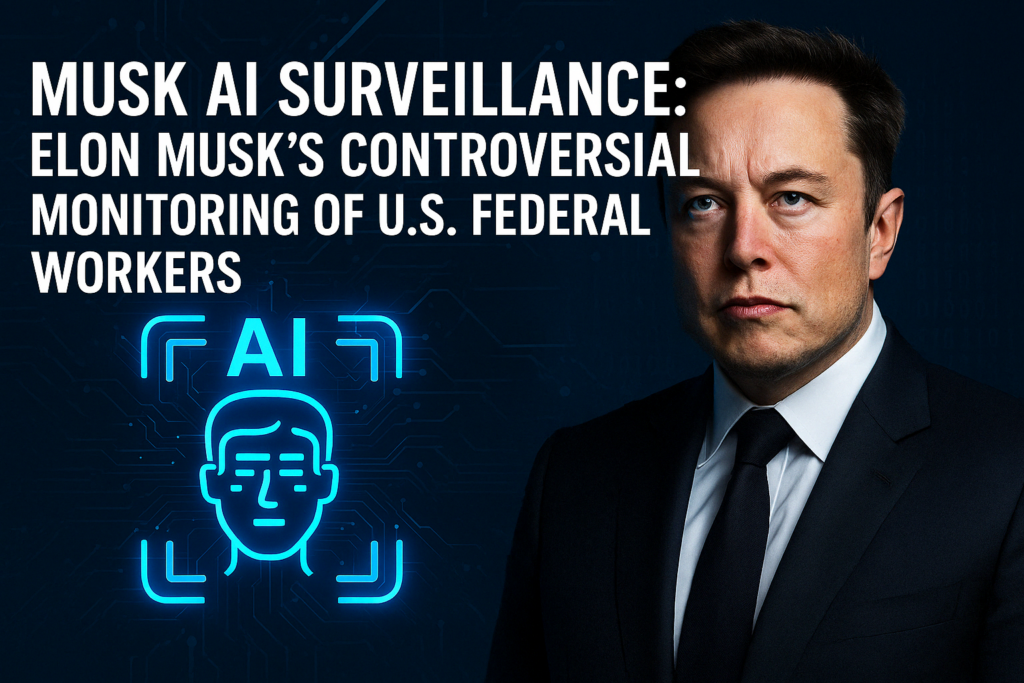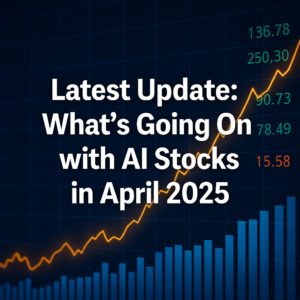Musk AI Surveillance: Elon Musk’s Controversial Monitoring of U.S. Federal Workers
Introduction
What happens when AI, politics, and power collide? In one of the most controversial tech-policy stories of 2025, Elon Musk’s Department of Government Efficiency (DOGE) is under fire for allegedly using artificial intelligence to monitor U.S. federal employees. This initiative, often referred to as Musk AI Surveillance, reportedly scans internal communication platforms like Microsoft Teams to detect messages critical of President Donald Trump or Musk himself.
The move has sparked outrage across political and legal circles, with concerns ranging from privacy violations to the misuse of government data. Critics say it undermines trust within public institutions, while others argue it’s a calculated step toward AI-enabled authoritarianism.
As AI continues to infiltrate public systems, the debate around Musk AI Surveillance raises urgent questions: Where should we draw the line between national security and personal privacy? And who watches the watchers when the surveillance is powered by code?
In this article, we explore what Musk AI Surveillance really is, why it matters, and the deeper implications for ethics, governance, and the future of AI in public administration.
What is Musk AI Surveillance?
Musk AI Surveillance refers to the reported use of artificial intelligence tools by Elon Musk’s Department of Government Efficiency (DOGE) to monitor digital communications of U.S. federal employees. These tools are said to flag internal messages that express dissent or perceived disloyalty toward President Trump or Musk, particularly on platforms like Microsoft Teams, Google Docs, and even encrypted messaging services.
According to leaked information, DOGE’s AI relies on sentiment analysis, natural language processing (NLP), and keyword detection—functions often used in commercial chatbots and analytics tools. However, applying these tools to monitor federal workers raises serious red flags among civil liberties advocates.
The controversy intensified after an appeals court restored DOGE’s access to sensitive personnel data within government agencies such as the Department of Education and the Treasury. Legal experts and former officials warn that such unchecked access could erode democratic oversight and institutional integrity.
In a time when generative AI and surveillance capabilities are evolving rapidly, Musk AI Surveillance highlights the growing tension between technological power and the ethical frameworks meant to contain it.
Benefits/Importance of Musk AI Surveillance
Supporters of the initiative have framed it as a step toward “modernizing government oversight,” arguing that AI could enhance transparency and performance in federal agencies. Here are some of the claimed benefits:
- Efficiency in identifying insider threats: AI can flag patterns and behaviors before they escalate into real security concerns.
- Enhanced oversight: Real-time communication monitoring offers faster response during sensitive national events.
- Standardization of employee evaluation: AI could reduce human bias in reviewing behavior or communications.
- Data-driven insights: Surveillance tools can identify systemic inefficiencies or misalignment in government policies.
However, these benefits remain hotly contested. Critics argue that the risks far outweigh the gains, particularly when ethical checks and legal transparency are lacking.




